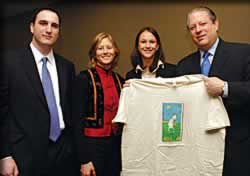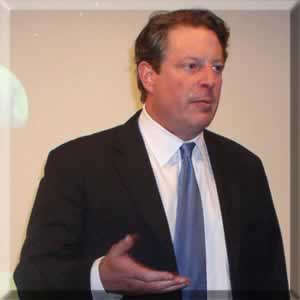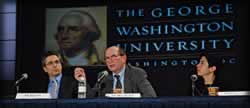E&EM Lead Professor Jonathan Deason was appointed to a GW Presidential Task Force on Sustainability formed by new GW President Steven Knapp in October 2007.
The task force is composed of students, faculty, and staff, and is charged with developing recommendations to enhance GW's academic initiatives in the areas of environmental stewardship and climate change as well as examining and recommending improvements in relevant University policies.
The task force will spend the academic year evaluating GW's existing academic and administrative programs and will develop recommendations addressing the following topics and areas: energy conservation, resource and waste management, sustainability awareness, research programs, learning/curricular opportunities, procurement policies, and service initiatives and partnerships. The task force expects to issue its report on June 1, 2008.
The presidential task force on sustainability complements the University's ongoing green initiatives. GW students currently participate in numerous student-led environmental organizations, such as Green GW and GW Net Impact, and GW's Class of 2007 created the Campus Green Fund to support various projects to help make the University more environmentally friendly and energy efficient.

In addition, GW is home to seven degree programs that promote environmental protection and sustainability. In addition to the Environment and Energy Management Program, these include the Environmental Law Program, the Environmental and Social Sustainability Program in the School of Business, the Environmental Studies Program in the Columbian School of Arts and Sciences, the Environmental and Occupational Health Program in the School of Public Health, the Environmental Engineering Program in the School of Engineering and Applied Sciences, and the Science and Technology Policy Program in the Elliott School of International Affairs.

The recently approved Foggy Bottom Campus Plan: 2006-2025, which was the result of a two-year community-based planning process, sets forth an approach to future campus development that embodies sustainable design in construction, landscaping, and maintenance, transit-oriented development, and neighborhood planning principles. GW also is the first university in the District of Columbia to agree to a minimum Leadership in Energy and Environmental Design (LEED) score of 16 points for all new construction.


